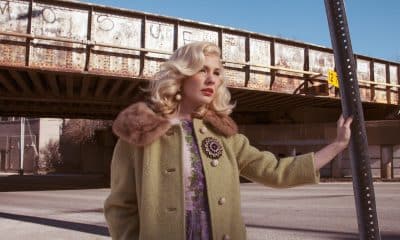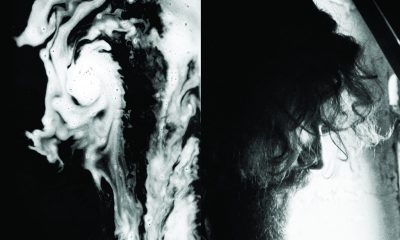Interviews
12 Questions With Little Big Town – The Jimi Westbrook Interview
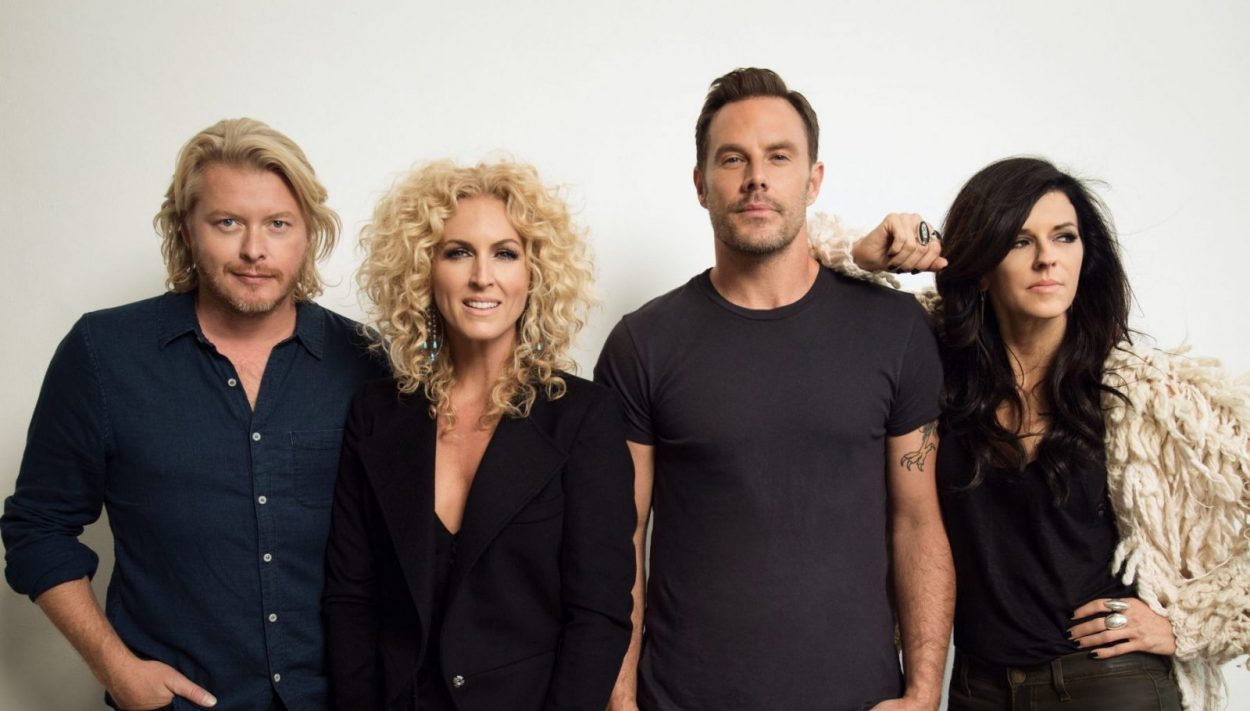
Little Big Town may be the most unheralded platinum-selling act in country music. Despite having only two top 10 singles to its credit, the band’s 2005 album The Road to Here was a quiet but unqualified commercial success, riding high on the heels of its breakout single “Boondocks.”
In this exclusive interview for The 9513, Little Big Town’s Jimi Westbrook talks about life with the band, as well as A Place to Land, the group’s current album, which has charted in the top 10 of Billboard’s Top Country Albums chart on two separate occasions–first with Equity in 2007, and then again, in re-issued form, on Capital Nashville in 2008.
JIM MALEC: Congratulations on your CMA nomination for Vocal Group Of The Year. How does it feel to be nominated in the same category as the Eagles?
JIMI WESTBROOK: Man, that’s just crazy. Especially being the band that we are, loving harmony so much. I grew up loving harmony so much, and the Eagles were definitely a band that I loved growing up and thought, “What a fantastic group of singers and musicians.” We would definitely list them as an influence, so to be nominated with them is pretty amazing.
JM: It seems like Little Big Town is constantly being compared to a number of 70s vocals acts–specifically, Fleetwood. I’m sure those comparisons are flattering, but I have to wonder if they also become frustrating, in the sense that your group is very much its own band with its own sound.
JW: Yeah, and, gosh, to be mentioned with the names of people like that, there’s definitely flattery there. If there’s any frustration at all it would be simply that we just set out to do what we do. And I believe we have. We’re kind of a melting pot of a lot of different influences.
The only thing you start fearing is, maybe, “Is that all people think we are?” I don’t believe it is, but there can be fear of that happening.
But to be mentioned with those artists–that’s crazy to me. I’m very appreciative, and when people say that, they mean it in the kindest way.
JM: One of the interesting things about Little Big Town, to me, is that you write most of your own material. Obviously, many of those earlier vocal-oriented bands did, too–but when we think of a modern or contemporary vocal group, songwriting isn’t generally considered a key part of that type of group’s identity. How important is songwriting to Little Big Town?
JW: It’s essential. You know, we’ve been a band for ten years as of this year. And back in the beginning, when we first came to Nashville, we were making our rounds and publishers were pitching us songs.
But we started writing as a band, together, because we found that there weren’t a lot of songs being written for the kind of music that we wanted to do. There are amazing, amazing writers in Nashville. Hundreds and thousands of them. But we just weren’t finding the kind [of songs] that we wanted, and that fit the direction we wanted to go. So that’s kinda when things started turning for us, and we just figured out we were going to have to write the music ourselves. ‘Cause who better to know the direction that we wanted to go in than ourselves?
It’s been a journey even on that side of things. You learn more and more about the craft and what you want to do, and you keep evolving and hopefully getting better as each year passes.
JM: Had each of you been writing songs prior to the that time when you realized you were going to have to write your own hits?
JW: A couple of us had. The girls, I think had dabbled a little bit, but had not spent as much time as maybe Phillip and I had. So it was a brand new deal all the way around, with all of us writing together and having a couple of people diving in a little more seriously than ever before.
JM: So, in that time between then and now–let’s say between the Monument record (2002) and A Place to Land–how has your songwriting, as a group, changed? Is there a different perspective now?
JW: I think if you go back–that Monument record was, of course, our first major deal where we were able to put out music–we were really green then. We hadn’t been in the industry very long, and I feel like we probably compromised a little bit on some of the music. But it was more on instrumentation, kinda the way the sound and everything was recorded.
I think if you go back and listen to that [Monument record], all of the same elements you hear in our music now are present. They’re just portrayed in a little different way. So more than anything, I think it was just the instrumentation and the way we were recorded are probably the major differences between what we were doing then and now. And, you know, just time passing and being more focused. In those years in between, having come out of that deal, I think we found out a lot about ourselves and realized we need to trust our own gut a lot more.
I think that’s one of the major things coming out of that deal. Just trusting ourselves and learning to listen to that voice inside a lot better.
JM: What are some of the specific things that they wanted you to do with that Monument record, musically, that maybe you compromised a little bit on? How would you have done that record differently if you had the chance to go back?
JW: Well, there was nothing done intentionally. There was nothing, per se, where they were going, “Hey, you can’t do this, you can’t do that.” I think it was more just some of the creative relationships we had there. It comes down to the fact that you’ve got people wanting to do things one way, and maybe you have different ideas. It’s just a matter of which battles to fight, and which things to settle for and go with.
But just in the studio, the natural thing that happens when there’s a collaborative thing going on in the studio, is that there’s differences of opinion on…gosh, that can go into many different aspects of the studio. Now there are some things we’re more likely not to compromise on. It wasn’t anything like somebody setting out to just do something we didn’t want to do. We were definitely a part of all of those decisions. But I think we’ve learned better the kinds of things we need to give in on and the kinds of things we don’t.
And now we’re in a completely different creative situation, with the guy who we write and produce everything with, Wayne Kirkpatrick. We all are more on the same page, the five of us, than in the previous relationships.
JM: Wayne has been a good fit for you guys.
JW: Oh, definitely. I think we just have the same musical tastes, and that goes a long way in the writing process. And I think that’s the reason why the writing process works for us. A lot of people might think that five people in a room writing a song would be chaos, but it just doesn’t work that way with us. I think we all have the same instincts musically, and so when we’re in those moments of making decisions, even as far as specific lyrics, it’s just not hard. It just works. In the moment, we don’t move on, even in the writing process, until we all look at each other and go, “Now that’s right. That’s the right way to go. That’s the right lyric and that feels like the right thing to say here.” It just works well that way. And I think that just speaks to our relationship with him and how similar we are musically.
JM: Let’s talk about where you are, musically. A Place to Land came out on October 14th. I’ve read a lot about the record, and I’ve listened to it a number of times, it’s very cool stuff. Tell me something I don’t know about it.
JW: Oh goodness…
JM: Not to put you on the spot or anything.
JW: I don’t know if everybody knows how hard it was…just how tough making that record really was.
Thank God for the success of The Road to Here, but because of that we were really on the road a lot. And when you’re touring as much as we do, well, just think of writing and recording a record in the middle of that kind of touring schedule. It’s pretty ridiculous. And I’m not sure we’ll do it that way again. It was necessary at the time and I feel like it worked out great, but I don’t think people understand that we were out touring four and five days a week, and then the other two days, when we were home, was when we were recording that record. So it was a continuous work cycle every day of our lives, for I don’t even know how many months. I think people don’t realize how involved that can be. ‘Cause if we were out on the road, then we were in the studio all day and night.
A kind of humorous thing you might not know is that on one of the tracks there is some really crazy instrumentation. On the title cut, Karen actually played a 1979 Coleman cooler–which I think turned out pretty good in the track. It’s fun to get in there and play some crazy instruments, and to start tweaking the sound and messing with the frequencies and doing some things like that. We actually made a huge kick drum out of the combination of Karen’s Coleman cooler, I was playing a guitar case, Kimberly was jumping and stomping with both feet and Phillip was playing a stool, smacking the stool on the floor. We combined all those sounds and made this really huge, thudy kick drum sound.
JM: Is Karen credited as playing the Colemon cooler in the liner notes?
JW: I think we actually did put that stuff in the liner notes.
JM: A Place To Land is a very upbeat record. Does that reflect where you guys are in your lives right now, or is that upbeat attitude just characteristic of Little Big Town in general? I have a hard time imaging you guys doing a lot of hardcore boozing and cheating songs.
JW: Yeah, definitely. I mean, we’re coming off of a great run over the past few years and in the writing process you want people to speak to the things they’re feeling at the moment. I always loved records that felt like a little snapshot of the lives of those people I was listening to, and I think that’s definitely true with us. We try to stay in the moment, with the things we’re feeling and wanting to say.
And that changes through time according to what we’re going through. If you go back to The Road to Here, there were some happy moments, but there were some really sad songs on there, too, that were really reflective of some of the tragedies that were going on in our lives at the time.
JM: What is country music?
JW: To me, when I think of country music and all the country music that I’ve always loved, I think it’s a format where you still tell stories. I think it’s music that speaks to people’s hearts. I think it’s about real life. It’s about real emotions. And that can be good or bad–it can be, like you said earlier, boozing and cheating songs. To me, country music really speaks to people’s hearts, and to the hearts of families. And that’s what I’ve always loved–you just get this feeling of life, love and family.
- Lists13 years ago
Top 10 Country Music Albums of 2010
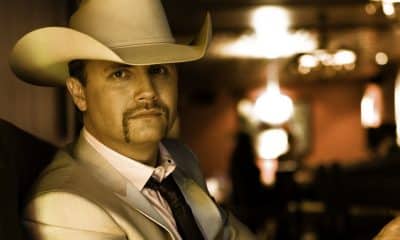
 Interviews5 years ago
Interviews5 years agoJohn Rich – The Interview

 Song Reviews16 years ago
Song Reviews16 years agoTaylor Swift – “Love Story”

 Interviews5 years ago
Interviews5 years agoHoneyhoney on Hiatus: Revisit our 2008 Interview with Suzanne Santo
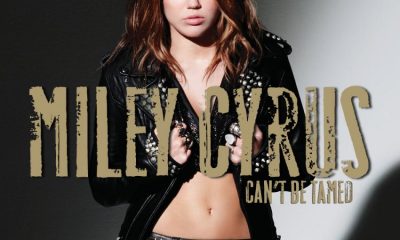
 Album Reviews14 years ago
Album Reviews14 years agoAlbum Review: Miley Cyrus – Can’t Be Tamed
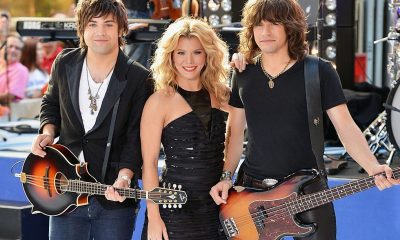
 Song Reviews6 years ago
Song Reviews6 years agoThe Band Perry – “Hip To My Heart”
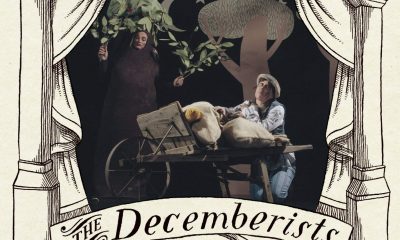
 Columns5 years ago
Columns5 years agoThe Link Between Folk Music’s Past and Present
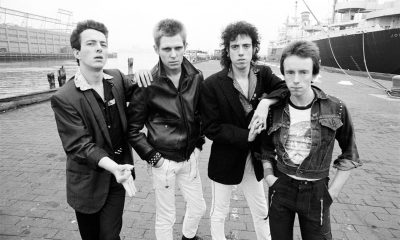
 Columns5 years ago
Columns5 years agoIs Marketing Killing Rock and Roll?




